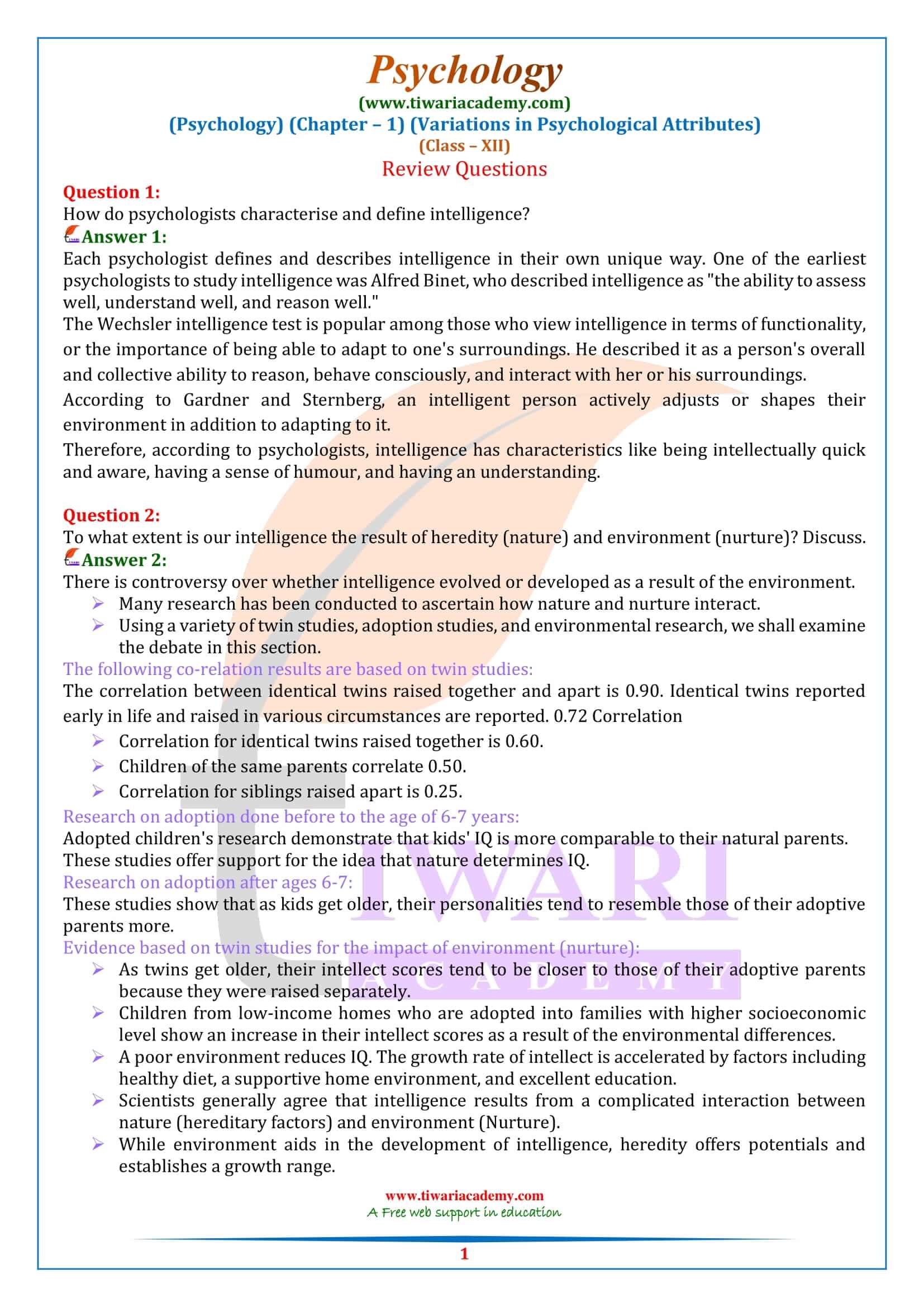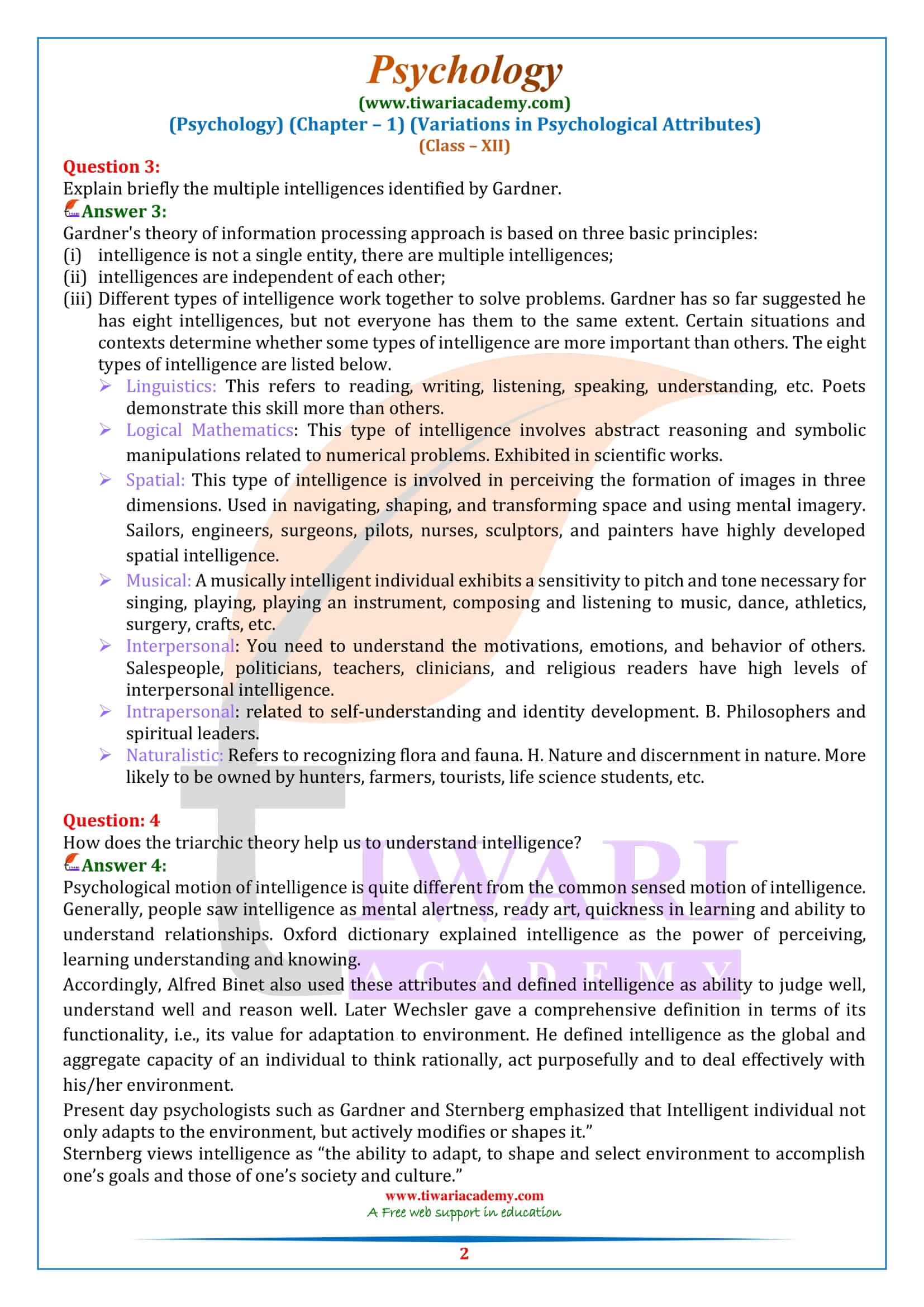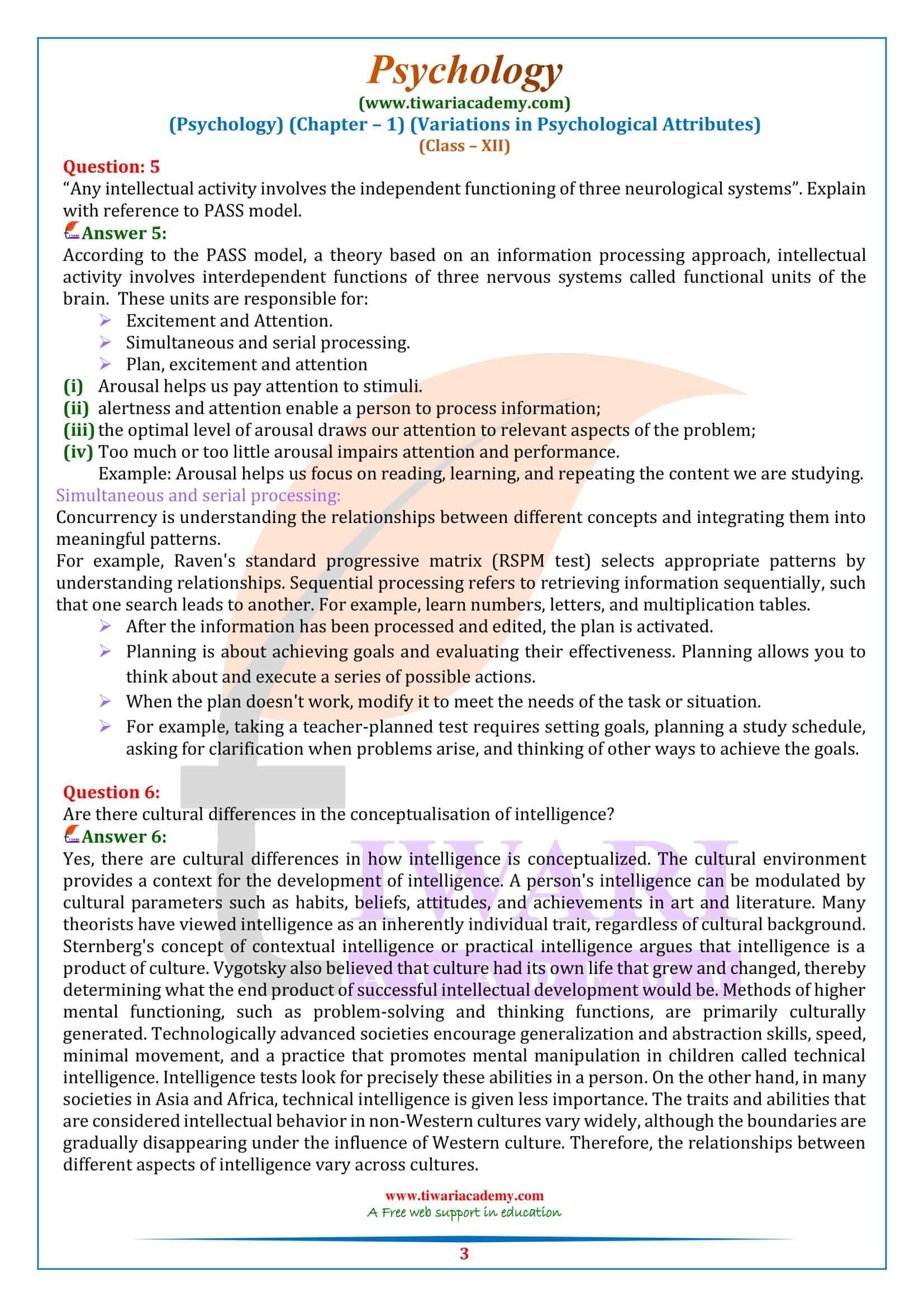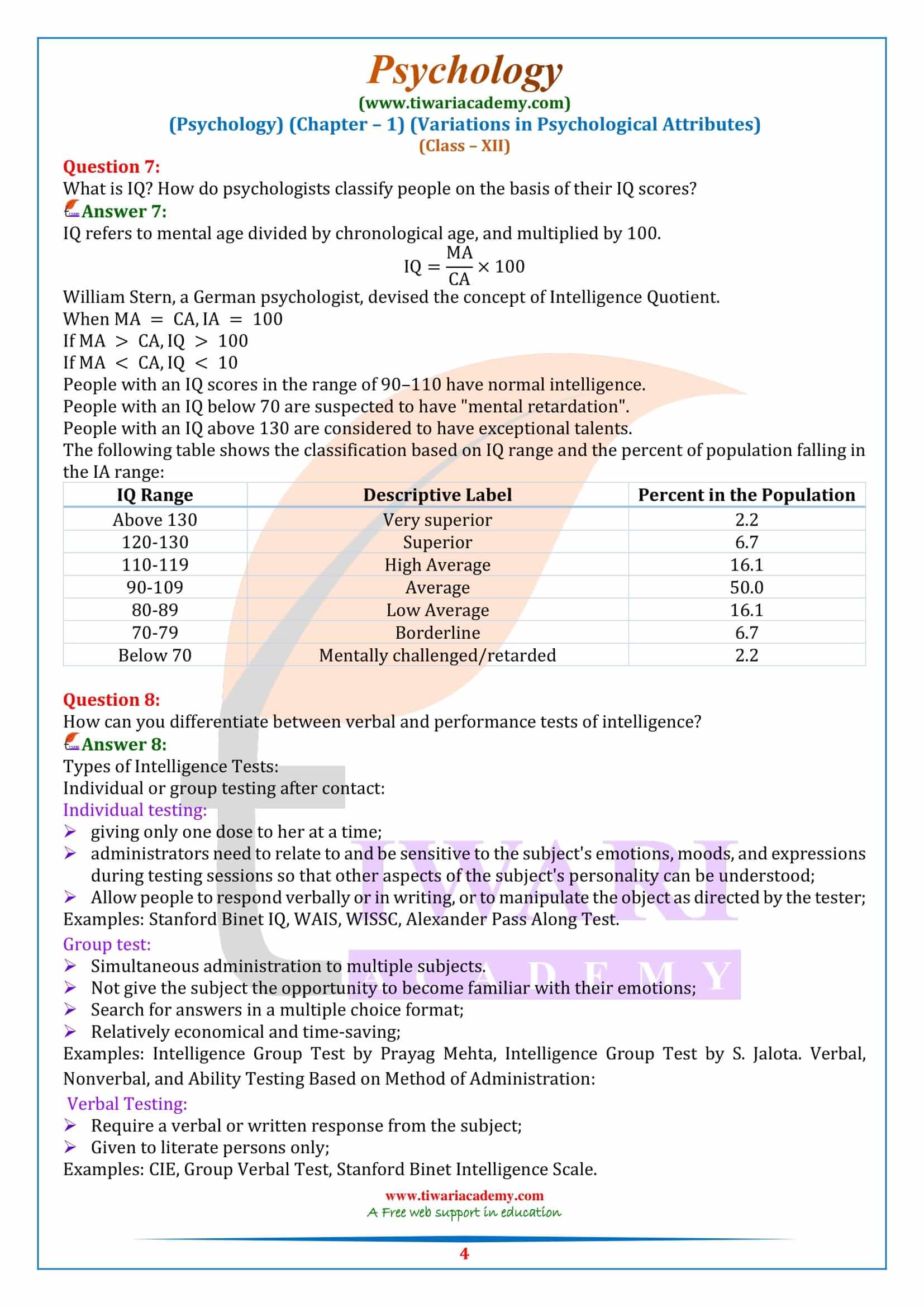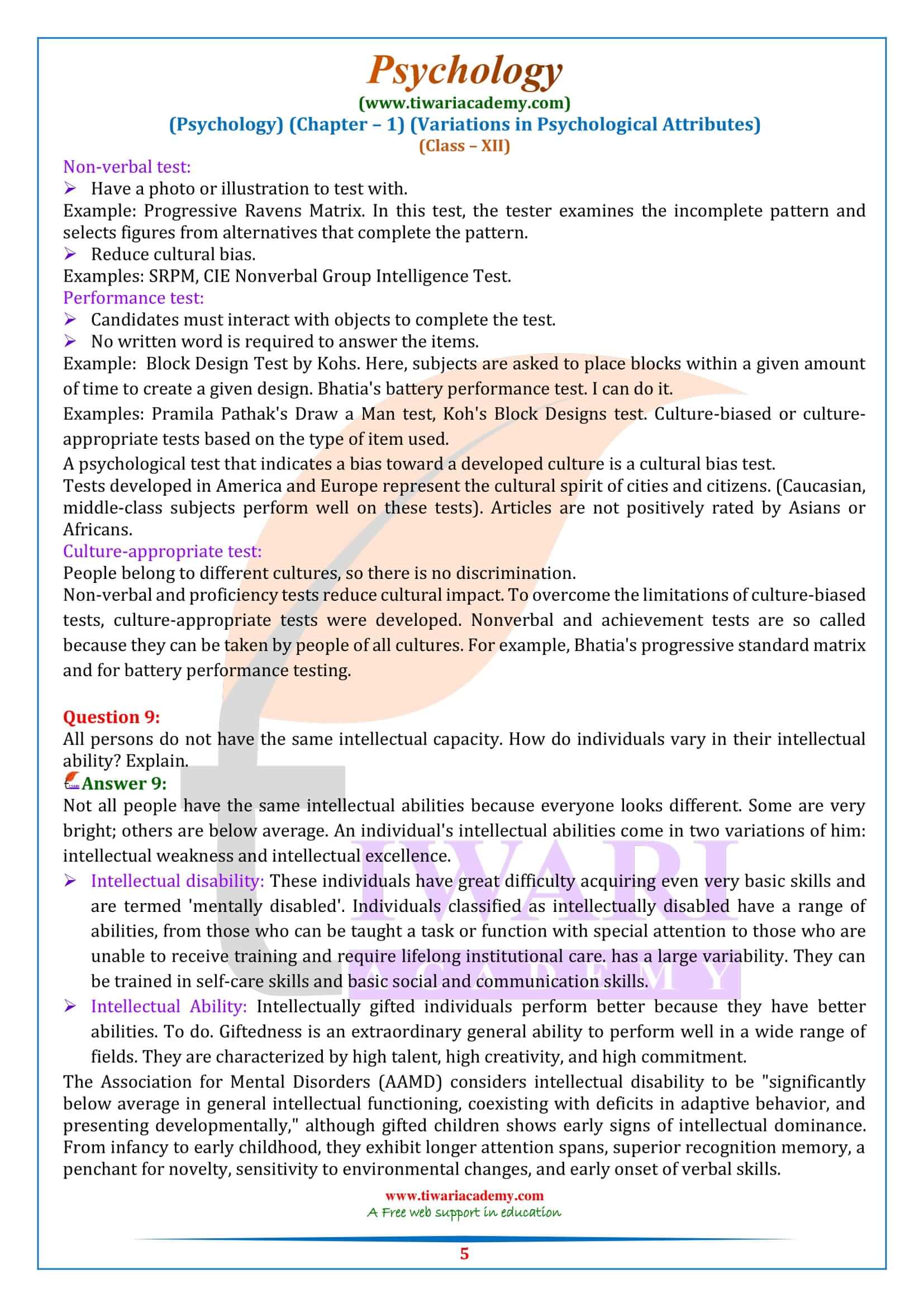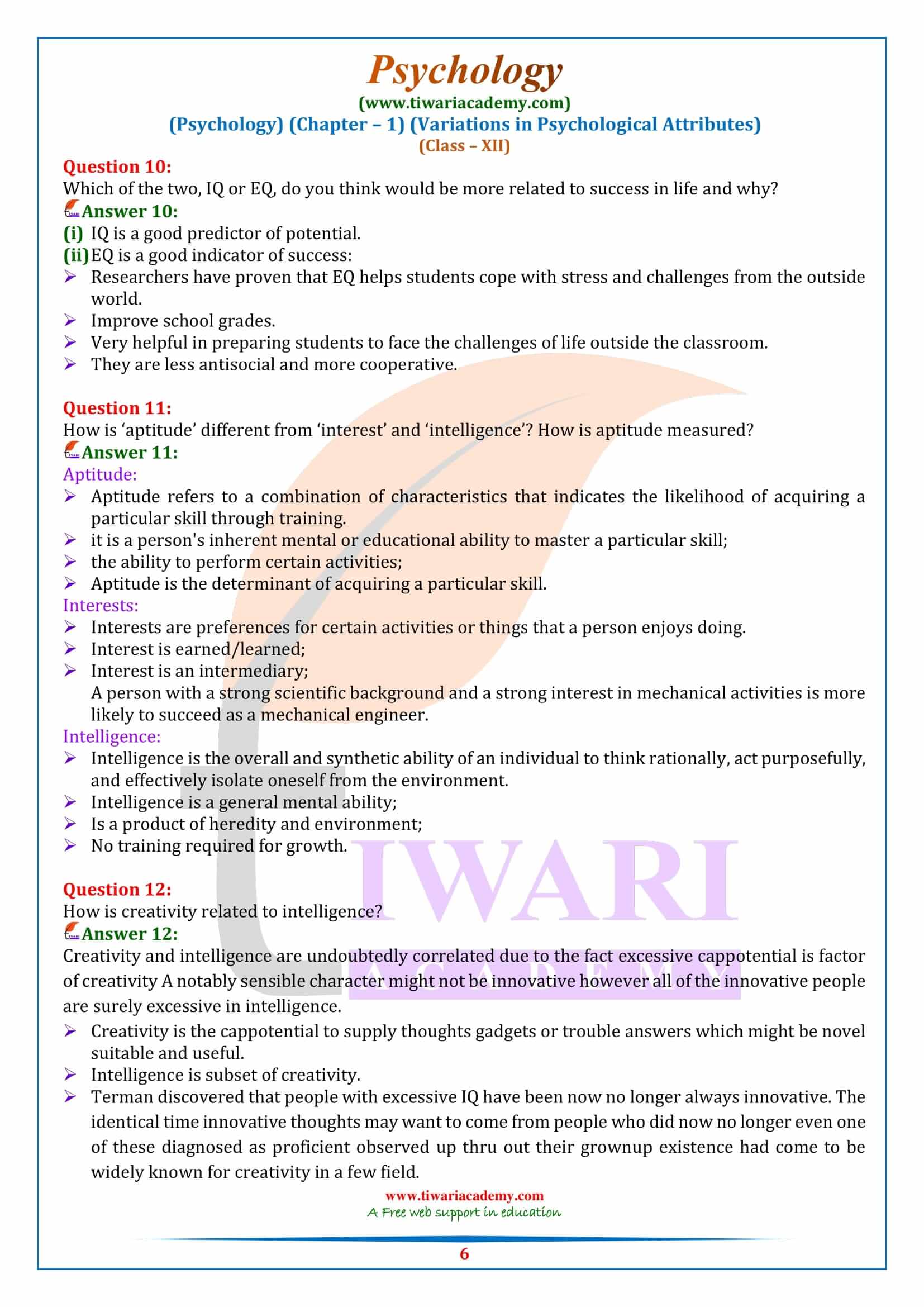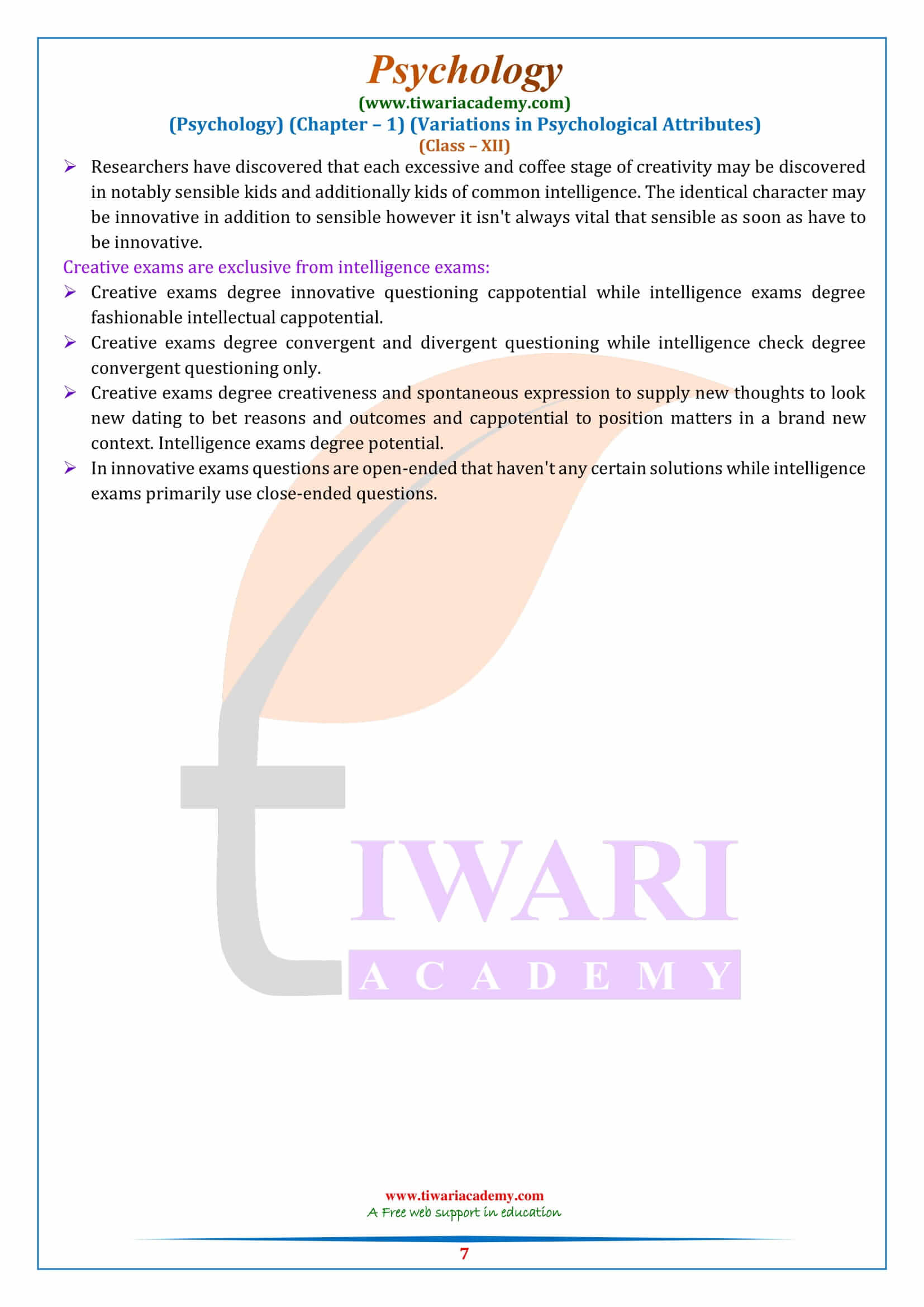NCERT Solutions for Class 12 Psychology Chapter 1 Variations in Psychological Attributes updated for new academic session 2024-25. All the question answers of 12th Psychology are solved by subject experts, so that students can prepare for their exams easily.
NCERT Solutions for Class 12 Psychology Chapter 1
Class 12 Psychology Chapter 1 Variations in Psychological Attributes Question answers
How do psychologists characterise and define intelligence?
Each psychologist defines and describes intelligence in their own unique way. One of the earliest psychologists to study intelligence was Alfred Binet, who described intelligence as “the ability to assess well, understand well, and reason well.” The Wechsler intelligence test is popular among those who view intelligence in terms of functionality, or the importance of being able to adapt to one’s surroundings.
He described it as a person’s overall and collective ability to reason, behave consciously, and interact with her or his surroundings. According to Gardner and Sternberg, an intelligent person actively adjusts or shapes their environment in addition to adapting to it.
Therefore, according to psychologists, intelligence has characteristics like being intellectually quick and aware, having a sense of humour, and having an understanding.
How does the triarchic theory help us to understand intelligence?
Psychological motion of intelligence is quite different from the common sensed motion of intelligence.
Generally, people saw intelligence as mental alertness, ready art, quickness in learning and ability to understand relationships. Oxford dictionary explained intelligence as the power of perceiving, learning understanding and knowing.
Accordingly, Alfred Binet also used these attributes and defined intelligence as ability to judge well, understand well and reason well.
Later Wechsler gave a comprehensive definition in terms of its functionality, i.e., its value for adaptation to environment. He defined intelligence as the global and aggregate capacity of an individual to think rationally, act purposefully and to deal effectively with his/her environment.
Present day psychologists such as Gardner and Sternberg emphasized that Intelligent individual not only adapts to the environment, but actively modifies or shapes it.”
Sternberg views intelligence as “the ability to adapt, to shape and select environment to accomplish one’s goals and those of one’s society and culture.”
Are there cultural differences in the conceptualisation of intelligence?
Yes, there are cultural differences in how intelligence is conceptualized. The cultural environment provides a context for the development of intelligence. A person’s intelligence can be modulated by cultural parameters such as habits, beliefs, attitudes, and achievements in art and literature. Many theorists have viewed intelligence as an inherently individual trait, regardless of cultural background.
Sternberg’s concept of contextual intelligence or practical intelligence argues that intelligence is a product of culture. Vygotsky also believed that culture had its own life that grew and changed, thereby determining what the end product of successful intellectual development would be. Methods of higher mental functioning, such as problem-solving and thinking functions, are primarily culturally generated.
Technologically advanced societies encourage generalization and abstraction skills, speed, minimal movement, and a practice that promotes mental manipulation in children called technical intelligence. Intelligence tests look for precisely these abilities in a person. On the other hand, in many societies in Asia and Africa, technical intelligence is given less importance. The traits and abilities that are considered intellectual behavior in non-Western cultures vary widely, although the boundaries are gradually disappearing under the influence of Western culture. Therefore, the relationships between different aspects of intelligence vary across cultures.
How is creativity related to intelligence?
Creativity and intelligence are undoubtedly correlated due to the fact excessive cappotential is factor of creativity A notably sensible character might not be innovative however all of the innovative people are surely excessive in intelligence.
Creativity is the cappotential to supply thoughts gadgets or trouble answers which might be novel suitable and useful.
Intelligence is subset of creativity.
Terman discovered that people with excessive IQ have been now no longer always innovative. The identical time innovative thoughts may want to come from people who did now no longer even one of these diagnosed as proficient observed up thru out their grownup existence had come to be widely known for creativity in a few field.
Researchers have discovered that each excessive and coffee stage of creativity may be discovered in notably sensible kids and additionally kids of common intelligence. The identical character may be innovative in addition to sensible however it isn’t always vital that sensible as soon as have to be innovative.
Creative exams are exclusive from intelligence exams:
Creative exams degree innovative questioning cappotential while intelligence exams degree fashionable intellectual cappotential.
Creative exams degree convergent and divergent questioning while intelligence check degree convergent questioning only.
Creative exams degree creativeness and spontaneous expression to supply new thoughts to look new dating to bet reasons and outcomes and cappotential to position matters in a brand new context. Intelligence exams degree potential.
In innovative exams questions are open-ended that haven’t any certain solutions while intelligence exams primarily use close-ended questions.
